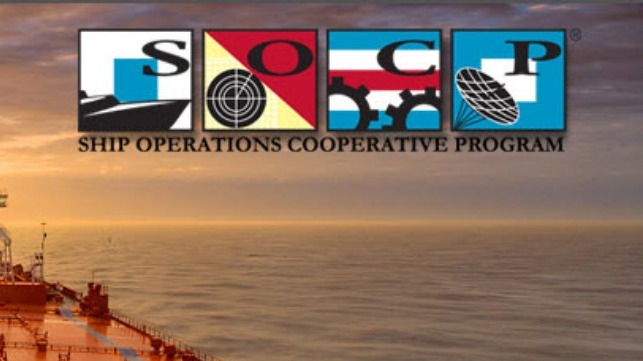SOCP Summit to Discuss The Human-Machine Team

The maritime community is invited to attend the Ship Operations Cooperative Program (SOCP) 2018 Spring Summit at STAR Center in Dania Beach, Florida on April 4 and 5. Unlike other SOCP annual meetings, this event will focus entirely on autonomous vessels to provide a forum for in-depth discussion with industry, government, education and the workforce.
Tracey Mayhew with the Seafarers International Union and SOCP Vice President, and John Jorgensen with ABS spoke to MarEx about the event:
Why is the SOCP having a summit focused on only autonomous vessels?
Tracey: The initial idea was that many people don’t have enough information regarding autonomous vessels to form good questions to ask. This forum seeks to provide information and robust conversation surrounding this topic.
John: With robotic autonomous vessels being developed in multiple nations around the world, it’s important that mariners and marine companies consider the implications of automation in their environments. People need to understand technology, to feel comfortable with it and to be competent running it. Companies need to understand the differences in their processes for operations. We are far enough in advance of fully operational autonomous vessels that we can begin familiarization and bring forth the issues that will affect people, human safety and vessel and environmental safety.
Please explain what the “Human-Machine Team” means.
John: The concept of humans being replaced in everything they do is far into science fiction. The reality we see ahead is mariners using machines – automation systems, robotic systems and autonomous helper technologies – to supplement and accelerate what they do with their everyday tasks. What we expect in the mid-term future is teaming arrangements between mariners and their machines, or company employees and robotic systems, including service and maintenance teams that will use robotic systems in their work.
The artificial intelligence being developed now, which we hear about so often in the press, will take the place of human interfaces like keyboard and pointing device (mouse) inputs for regular work, adding worker supplementation, process knowledge and anticipatory action cues to the operator, based on sensors and analysis systems working with the automation system. The potential is great, but providing this potential to companies to use means understanding and developing the processes by which people will work. This goes back to the first question: it’s time to start considering how people will work with robots that go to sea.
How did this come to the SOCP’s attention?
Tracey: As we hear more and more about autonomous vessels in the media our membership is seeking an opportunity to gain information and become a part of the conversation.
John: The SOCP is linked closely to operating companies, mariner organizations, marine schools, government agencies and technology development organizations. The increasing numbers of queries we’ve had from mariners and schools also prompted us to consider how these technologies can be developed and operated safely, securely and effectively.
What specific topics will you be covering?
Tracey: The first panel on April 4th, titled “Autonomous Vessels 101” will provide foundational knowledge. We will then build on that panel by looking at different autonomous projects, regulatory outlooks and future training needs.
John: We will survey system types being developed around the world, proceeding to technology discussions that examine safety, security and operational utility of the technologies. We want people to understand that they are part of the technology progress in the marine community.
How will this in-depth approach help the maritime industry?
John: The more people know about technologies being integrated with ships, offshore assets and shoreside facilities, the more prepared they will be to work with new systems, new capabilities and new processes. Safety and effectiveness go closely together, and safety, especially, requires mariners, owners, operators and schoolhouses to be closely integrated with the systems they use, maintain and sustain.
Tracey: The discussion on autonomous vessels has many different aspects, so there is a learning curve to become an effective part of the conversation. Only through robust and inclusive conversations can the challenges and opportunities of autonomous vessels be realized.
How can the SOCP as an organization help the U.S. maritime industry by focusing on this topic?
John: The SOCP is centrally located among many of the vital stakeholders in the marine industry. Mariners, students, owners, government agencies, operating companies, classification societies, technology providers, flag state regulators, marine schools – all are vital to the operation and transition of the maritime industry into our shared future. The SOCP connects these entities together in a collaborative forum that allows all to move forward, together.
Tracey: To help further this engagement, the SOCP will be launching a U.S. maritime autonomous vessel consortium to identify challenges and opportunities. Input from the SOCP Spring Summit panel discussions will help to craft the foundation and framework for this consortium.
Why should people attend this summit?
Tracey: Anyone seeking information on or wanting to be a part of the conversation on autonomous vessels will benefit from attending.
John: And those who support the seagoing mariners and companies, as well as people who want to learn about the merchant marine and seagoing careers, seek to understand why sea transportation is so vital to the nation, and see what automation systems have to offer us in the future.
Thank you, Tracey and John. We wish you and the SOCP a successful Spring Summit.
To register for this event, please visit the SOCP website at: http://www.socp.us/article.html?aid=224
The opinions expressed herein are the author's and not necessarily those of The Maritime Executive.
